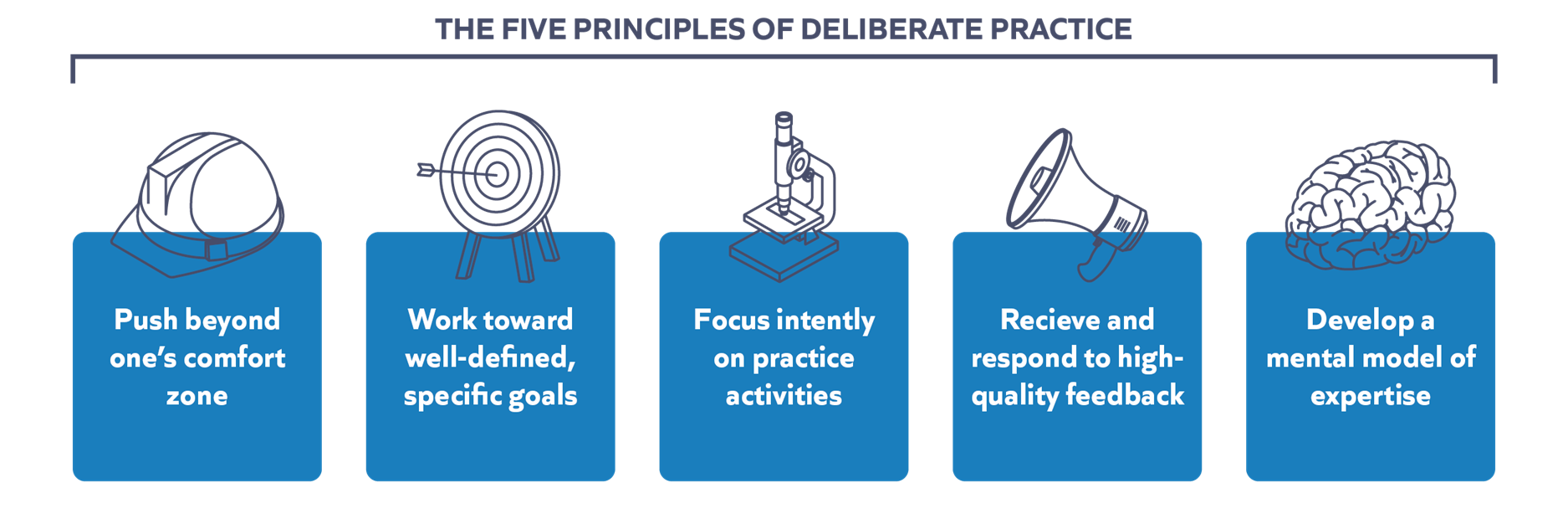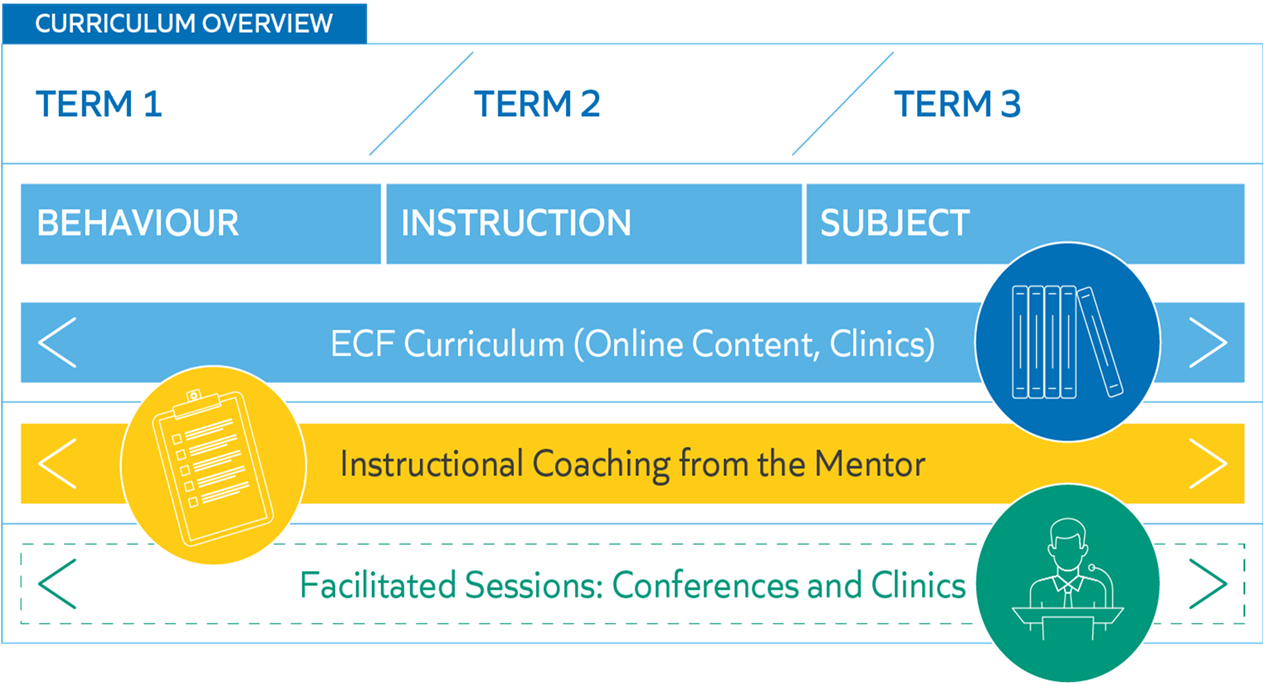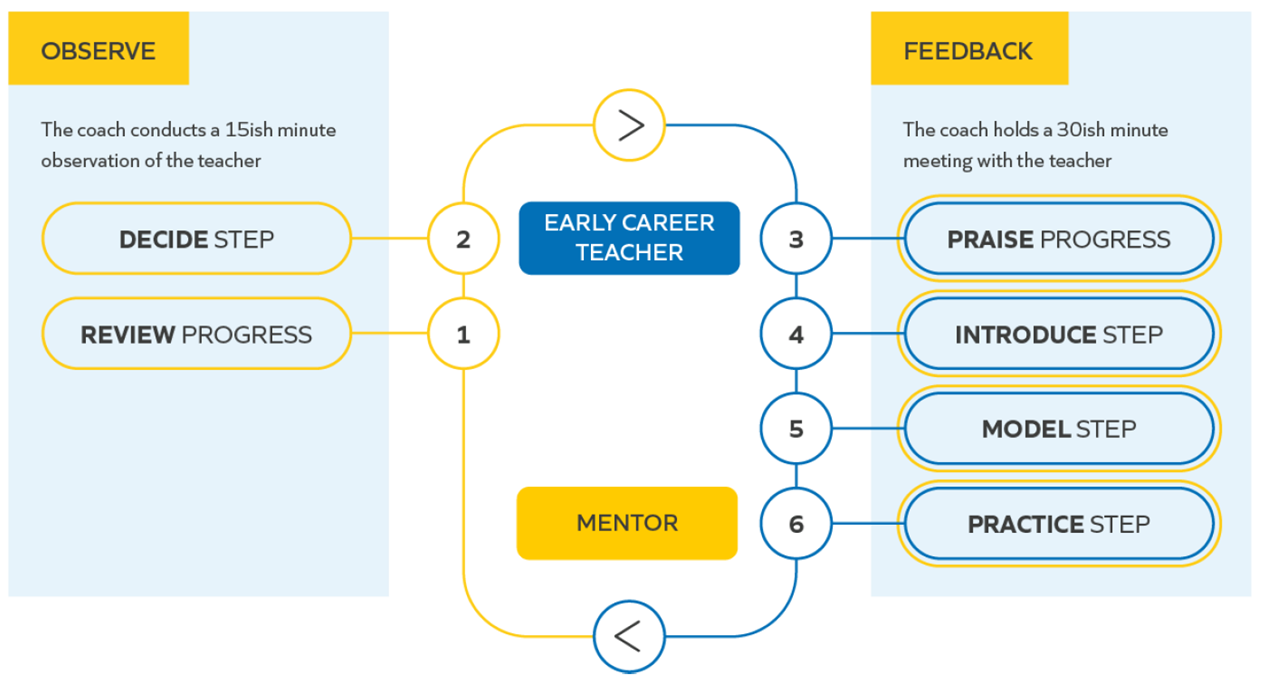Information for ECTs
What you learn
- All the ‘learn that’ and ‘learn how to’ content of the Early Career Framework
- What effective teaching looks like, through specific examples and explanations, including modelling by your mentor in your school context
- How to keep getting better, so you can continue to improve and thrive.
How you learn
- Face-to-face training, virtual peer-learning groups, expert-led webinars and weekly video tutorials; alongside support for effective mentoring.
- Content is designed and delivered by experts in teacher education, drawing upon the best available evidence in how teachers learn.

Deliberate practice is a key part of the coaching model. Teaching is a performance profession. ‘Rehearsing’ an approach before ‘performing’ it live can help fluency and confidence. In this context, this type of rehearsal is called deliberate practice. Deliberate practice is not mindless repetition. It is a purposeful, targeted form of practice in the presence of an expert, with the aim of improving current performance (Ericsson et al, 1993). While it is a powerful tool for any teacher, there is evidence that it is particularly useful for novice teachers (Deans For Impact, 2016). Deliberate practice is a critical part of the instructional coaching model and therefore the programme. It is what will convert developed mental models into improved teacher practice. However, in order to be successful, deliberate practice needs to meet the following principles. This is taken from Deans for Impact publication Practice with Purpose (2016).
- Presenting challenges that push people just beyond their comfort zone
- Setting goals that are well defined, specific, and measurable.
- A significant level of focus; the practice involves conscious effort on the part of the novice in order to improve.
- Providing high-quality feedback to the novice and adjustment by the novice in response to that feedback.
- Deliberate practice both produces and relies on mental models and mental representations to guide decisions. These models allow practitioners to self-monitor performance to improve their performance.
Your mentor will receive training in deliberate practice and instructional coaching to support you through this.
See the ECT Programme Overview - StrucTure & Design
A week in the life of an Early Career Teacher
Abdi is an ECT in a secondary school. He teaches Science. We join him in during the Autumn term of the first year of his induction.
“I’m really enjoying being part of the Early Career Teachers programme, and I can see the difference it is making to my practice already.
I’ve found the bite-sized nature of the programme really useful. It’s allowed me to get into a good habit with my self-study. I have a free period on a Tuesday afternoon which I use to complete the self-study each week. My head of department is also free at the same time, so quite often I’ll go and badger her with any questions I have!
My mentor is amazingly supportive. This term I’ve been working on the behaviour strand and each week in my instructional coaching sessions he models the technique that we are going to work on. This is much more helpful than just talking about the technique as it means I can see exactly what it should look like, in the context of my own school. This is particularly useful in terms of putting into practice the general principles I’ve learnt into a science context. After sharing the model, he supports me to practise – this helps me because it means I can get feedback and improve before trying something out for real in front of pupils.”


